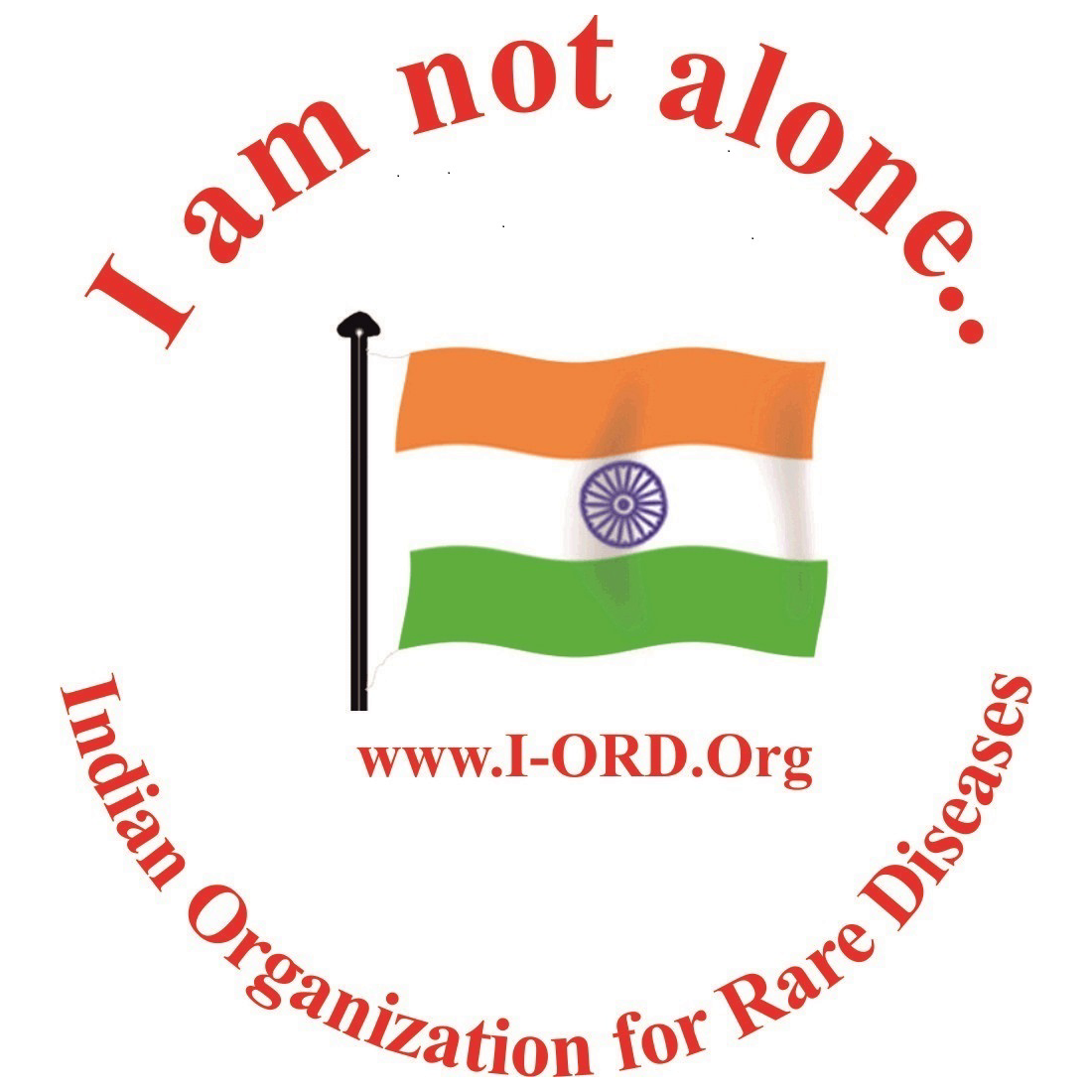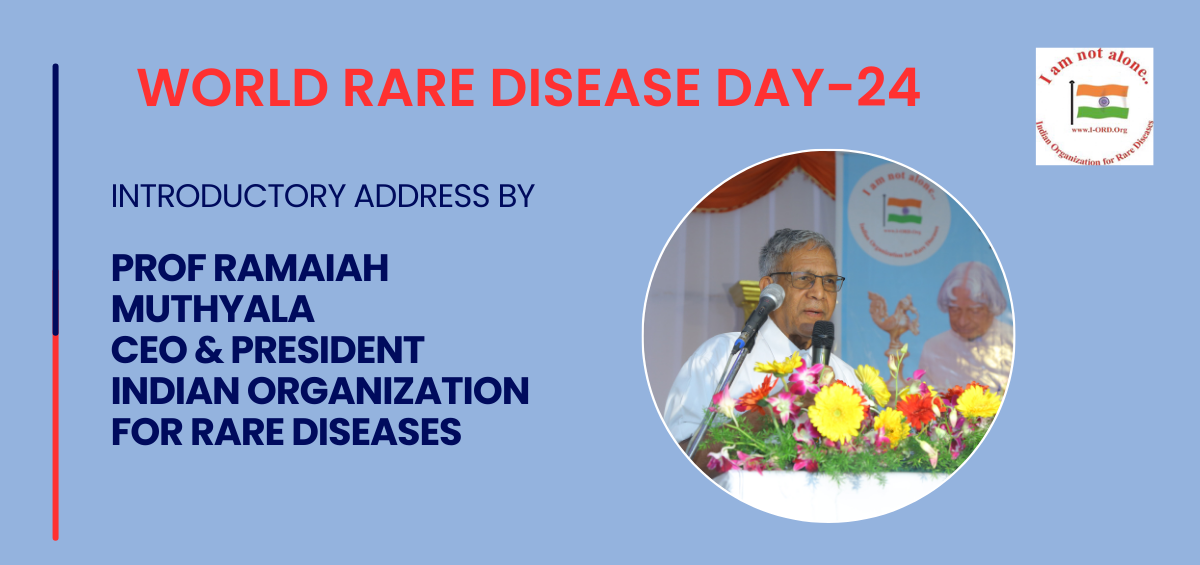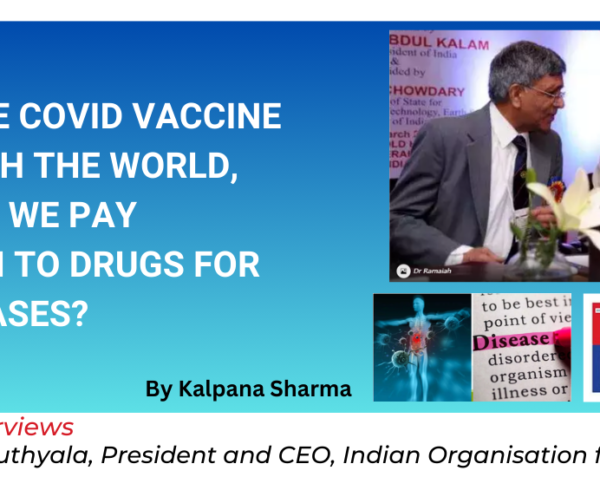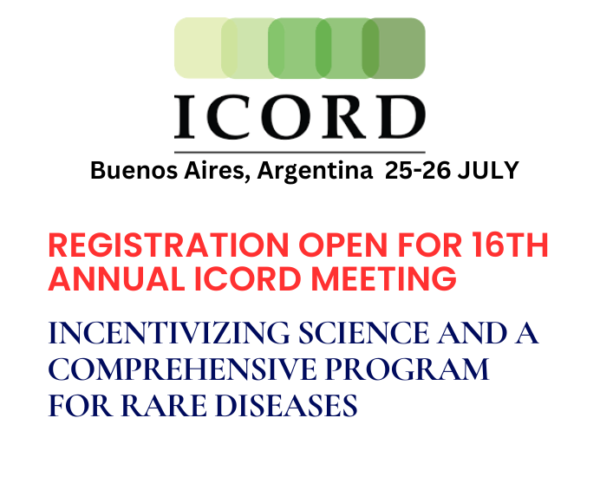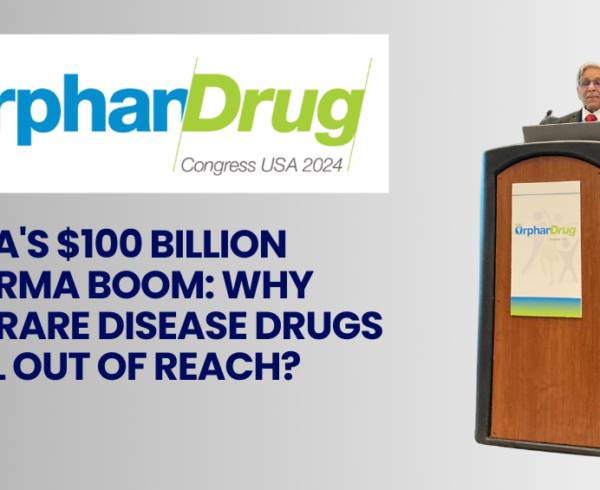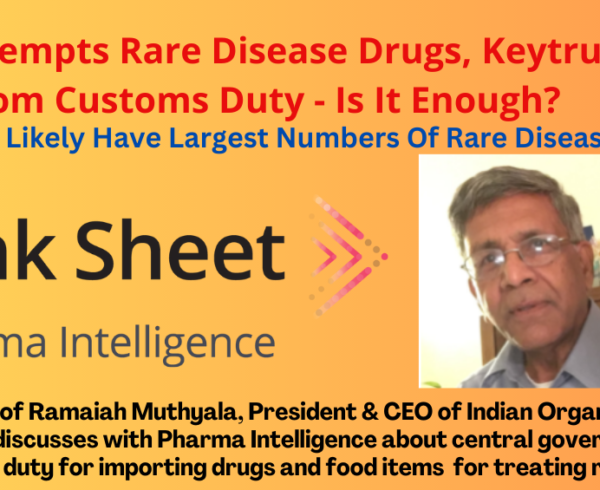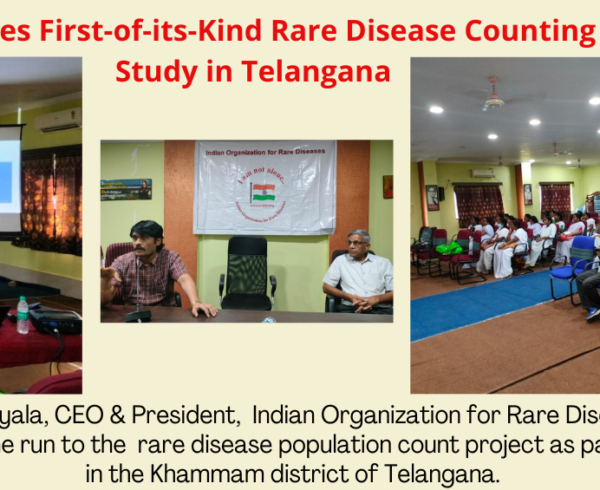The following is a translated excerpt from the speech made by IORD CEO & President Prof Ramaiah Muthyala at World Rare Disease Day-2024 conference organized by IORD at IMA Hall, Khammam on March 3.
Thank you for joining us at this conference. We’re delighted to see many students and young nursing professionals here. Today, I’ll be discussing rare diseases. We commemorate the last day of February as World Rare Disease Day. While we previously held such events in cities like Delhi, Mumbai, and Hyderabad, we decided to bring the event closer to home and organize it in Khammam. This marks a historic day for our city.
I’ll delve into the importance of Rare Disease Day later. First, I’d like to highlight two crucial issues: what constitutes a rare disease and why it deserves our attention. The Indian Organization for Rare Diseases was established in 2005. Initially, our focus was on raising awareness because without it, the question of treatments for rare diseases wouldn’t even arise, and unfortunately, people used to overlook it. However, in 2014, we were honored to have former President of India, Dr. APJ Abdul Kalam, attend our event. His presence drew attention, propelling rare diseases into the mainstream in India.
Without awareness, there are no treatments. Doctors used to ignore it. We still cherish memories of Dr. Abdul Kalam’s support. Rights and opportunities for rare disease patients should be equal to those of the general population. IORD focuses on advocacy, diagnosis, and treatment, among other areas. While you are familiar with common diseases like diabetes and rheumatoid arthritis, there are 37 such diseases globally. Malaria, TB, tropical diseases, or neglected diseases number 17. However, there are over 7000+ rare diseases, some of which are challenging to pronounce, and some haven’t even been named yet. While treatments are available for blood disorders like sickle cell anemia and thalassemia, several rare diseases, such as Gaucher disease, remain unfamiliar to many.
Approximately 5% of the population is affected by rare diseases. However, due to their minority status, they often receive insufficient attention. Rare diseases are lifelong conditions that persist until death. Most are genetic disorders, some of which go undiagnosed. Out of a population of 90 lakhs, 5.4 lakhs reside in Hyderabad, with 1.4 lakh rare disease patients in Khammam district alone. Yet, how many of these patients have been diagnosed in hospitals across Khammam? Scarcely any! Consequently, they are neglected. Seventy percent of rare diseases exclusively affect pediatrics, 12% exclusively affect adults, and 15% affect both pediatrics and adults. Furthermore, 75% of these diseases are genetic disorders, and they can manifest at any age, leaving individuals uncertain about their onset.
India and China, three-fourths of rare disease patients reside in these two countries. Despite advancements, 64% of Indians still inhabit rural areas. Renowned scientist Stephen Hawking battled the rare disease Amyotrophic Lateral Sclerosis (ALS) for 55 years, yet the true extent of their suffering remains unknown. It is the mother who bears the greatest burden. The responsibility falls heavily on her shoulders.
Where does one turn for help? Diagnosis alone can take an average of six years, leaving patients and families in anguish. Doctors are often powerless due to the lack of medications and insufficient education on rare diseases in medical schools. Should we neglect the 5% of the population affected by rare diseases? It is our responsibility to take action. While treatments (and not cures) exist for only 5% of the 7000 known rare diseases, it took decades to develop them. At this pace, it could take thousands of years to find treatments for the remaining 95% of rare diseases.
Can we make a difference? The government may have its limitations, but it must allocate resources appropriately to rare disease patients based on their population and burden share. Until recently, rare diseases lacked policy attention, resulting in their continued neglect.
Often, rare disease diagnosis can take an agonizing 7-8 years, with some treatments for rare diseases requiring exorbitant funds annually. It’s crucial to show sympathy and empathy towards those affected. Although a definition for rare diseases exists in some countries, India lacks one tailored to its context. Currently, any disease afflicting 1 in 2 lakh individuals qualifies as rare in the USA, but this lacks official recognition in India.
The disparity between healthcare budgets—India allocates 1.7% of GDP, whereas the USA devotes 17%—underscores the inadequacy of foreign standards. Furthermore, there’s no census or registry for rare disease patients, despite their significant impact.
While not all disabilities are rare diseases, all rare diseases constitute disabilities. India’s pharmaceutical prowess, accounting for 25% of global production, is notable, yet orphan drugs are not manufactured due to limited demand. Tax incentives could redirect focus.
Let me come back to what I said earlier. In 2008, the last day of February was designated World Rare Disease Day, emphasizing global unity. WHO emphasized that no healthcare system is complete without addressing rare diseases. Legislative and advocacy priorities are paramount, as treatments may follow later.
However, numerous challenges persist, such as the six-year average diagnosis time. Incentivizing pharmaceutical companies to develop FDA-approved drugs for 95% of rare diseases is essential. Initiatives like our pilot project with ASHA workers in Khammam and Kamepally aim to establish a definitive rare disease definition. Despite global praise from WHO, progress has been sluggish, but with renewed efforts, we’re optimistic about its completion.
With these words I close my presentation and urge everyone to do their part to make rare diseases patient’s life little better.
Check the video version of IORD CEO & President Prof Ramaiah Muthyala’s speech on World Rare Disease Day-2024 delivered at IMA Hall, Khammam (Telangana) here.
